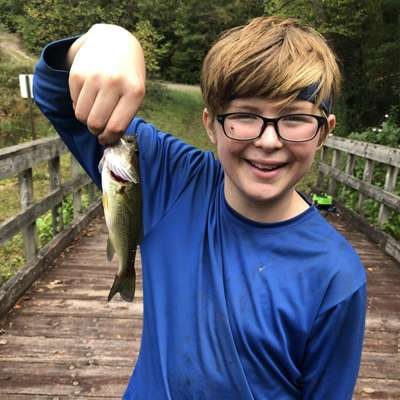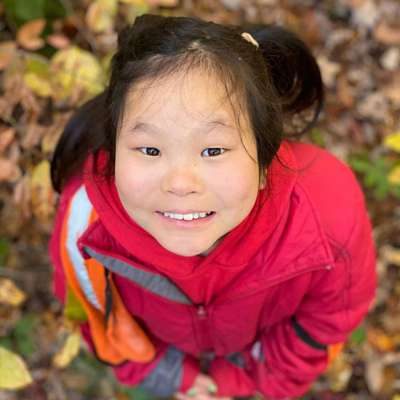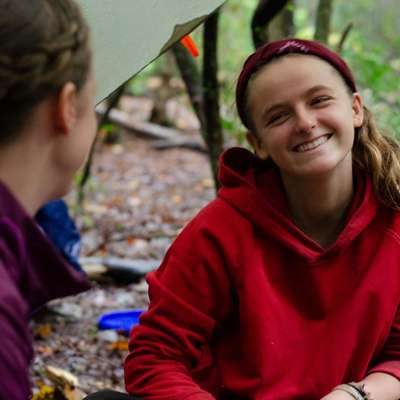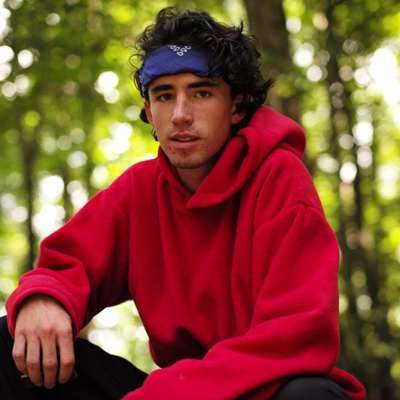What Is A Wilderness Treatment Center?
Wilderness treatment centers are live-in treatment facilities that provide therapeutic programming which can include adventure therapy, wilderness therapy, and family therapy to help individuals struggling with mental health challenges and difficult life circumstances.
Trails Carolina, a wilderness treatment center for youth ages 10-17, offers powerful therapeutic intervention that combines the strengths of the best wilderness therapy programs with the residential respite and facilities of our North Carolina wilderness therapy treatment center.
Our program is designed to allow students the opportunity to practice transitioning their newly learned healthy coping skills between a residential base camp and outdoor living under the protective guidance of clinicians and expert Trails Carolina staff.
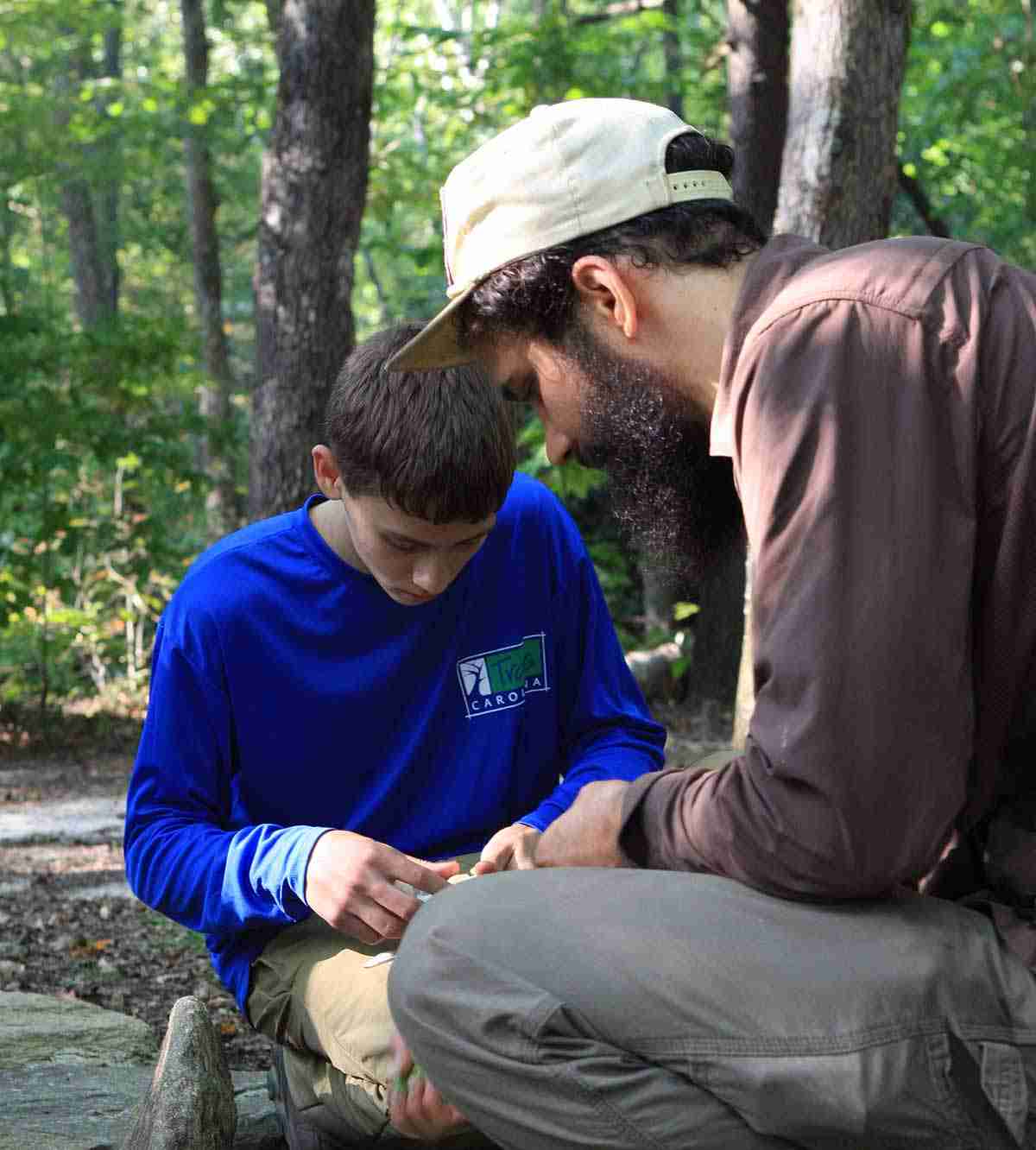
Like a traditional residential treatment center, wilderness treatment centers create a space for healing by removing distractions such as technology, temptations of daily life, and negative influences. What sets a wilderness treatment center apart is that it replaces these everyday temptations and distractions with the natural environment.
By participating in outdoor activities, our students start to allow the quiet and natural consequences of the wilderness to teach healthier coping skills and emotional control. This results in the development of coping strategies that replace self-harm and support recovery; the reduction of damaging behavioral issues; an increase in self-awareness and confidence; increased resilience and the ability to overcome stress and anxiety.
Why Choose Trails Carolina For Youth Mental Health Support?
Trails Carolina can help. Call us today to learn more.
A Transformative Experience Awaits In The Blue Ridge Mountains
There are many significant considerations when families are searching for ways to better support children who are struggling.
For our students, these struggles can include depression, anxiety, low self-esteem, defiant behaviors, school refusal or poor academic performance, challenges forming peer and familial relationships, difficulty processing trauma, working through attachment issues, video game or technology addiction, and/or experimenting with drugs or inappropriate sexual relationships.
In the range of treatment options, wilderness therapy combined with a wilderness treatment center has been found to be extremely beneficial compared to other interventions. Duration of care is relatively short (70-90 days) compared to that of a therapeutic boarding school ( 9-12 months), while assessment, diagnoses, and lasting results are high (read wilderness therapy reviews).
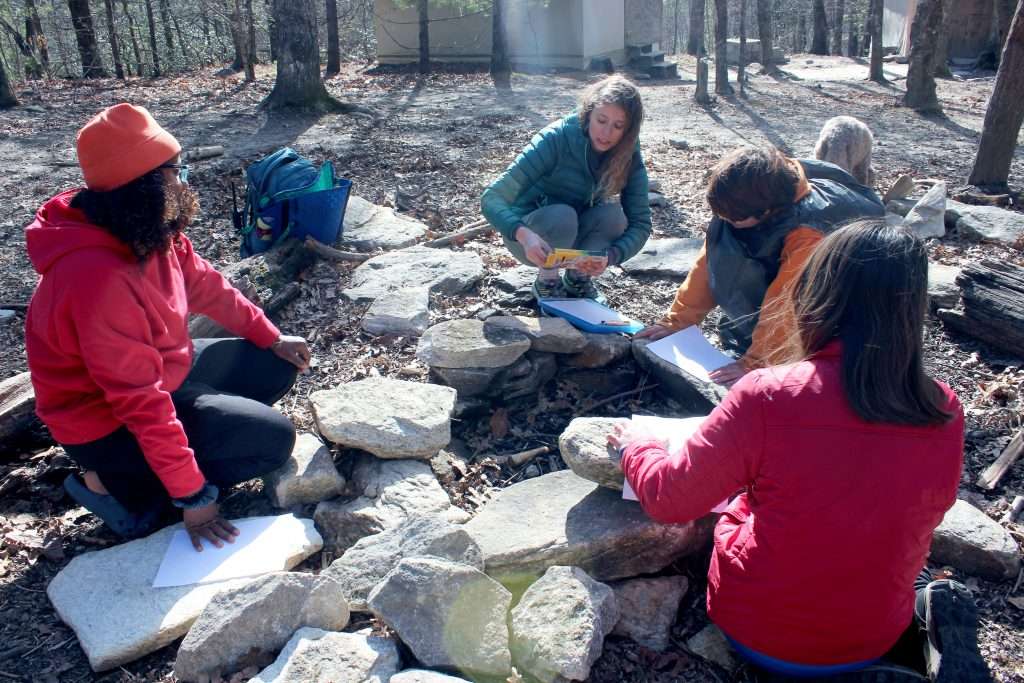
The cost of wilderness therapy is also an important consideration when choosing between treatment facilities. At Trails Carolina, tuition is based on a daily rate of $715 per day for our Youth Groups (10-13) and $675 for our Adolescent Groups (14-17).
Tuition includes everything from an individual treatment plan and individual therapy sessions from expert clinicians, to equine therapy programs, to family coaching and alumni support services, to nutritious meals, clothing, adventure gear, and room and board.
Evidence-Based Benefits of Our Wilderness Treatment Programs
As the need for therapeutic programs for youth continues to increase, more and more parents are asking the question, Does wilderness therapy work?
At Trails Carolina, the empirical evidence from a multi-year outcomes study, as well as countless Trails Carolina reviews from parents, points to yes.
As a wilderness treatment center, Trails Carolina provides youth the opportunity to switch between a wilderness setting and a residential camp setting. Many programs provide residential treatment without opportunities for patients to practice what it will be like to return home after completing the program. At Trails, we understand the research-backed value of the process of practicing transitions.
Transitioning between physical and social environments helps students transfer skills learned in one setting to the other. This allows for a smoother transition out of the therapeutic setting once a student graduates from the program. There are numerous, evidence-based benefits of wilderness therapy at Trails Carolina, including:
Contemporary Examples Of Wilderness Treatment Centers
Chad Hepler started a slippery slope of progressively more experimental and debilitating drug use at the age of 14. Hepler slid from marijuana use to more powerful substances. He wrote a book chronicling his descent and then the value he received in his experience at a wilderness treatment center.
Hepler's book reviews not only his struggles but then how he successfully transitioned into a college environment to continue on his newfound path to sobriety and healthy living.
While more spa-like in its goals and impact, the sensory experience and invaluable reflection and mindfulness that resulted from this journalist's wilderness treatment center experience offers a different and unique perspective on the value of removing life's daily stressors. During the wilderness portion of her expedition, the author was able to have time to enjoy and reflect.
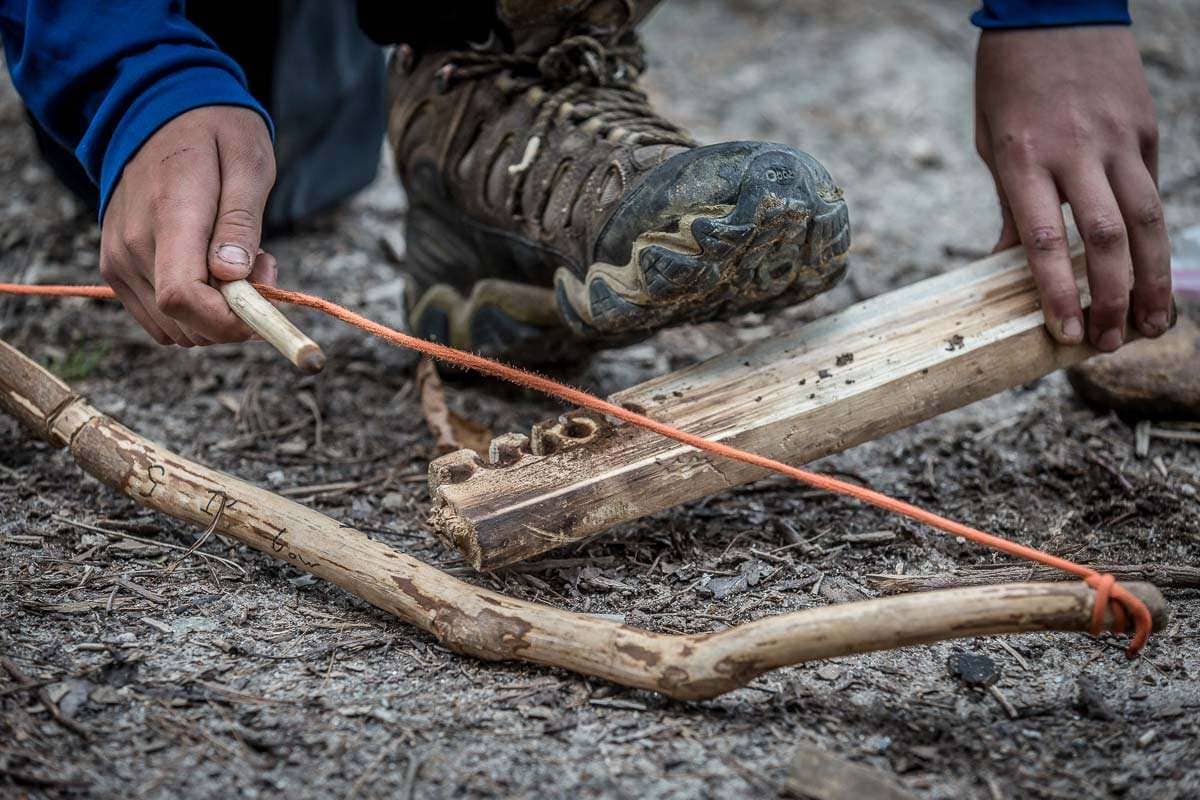
Wilderness Treatment Center Research
This book explores the growing range of treatment options and proposes the value in selectively and carefully choosing treatment alternatives whether that is local outpatient, wilderness treatment, residential treatment, or a wilderness treatment center. The book analyzes growth trends, effectiveness, and the impact of internal (e.g. client readiness) and external (e.g. geography, disruption to current status and routine) conditions. This book encourages a strong match of needs and resources.
Residential and Inpatient Treatment of Children and Adolescents. Gabel, Stewart, Lyman, Robert D., Prentice-Dunn, S. (Eds.)
Randomized sample of adolescents in multiple program types: wilderness therapy, residential treatment, or wilderness treatment centers. The study explores the commonality of issues preceding treatment which were shown to include oppositional defiance, aggression, family history of mental health issues, and trauma, among other issues. The client profile is explored as a critical component in the type of programs available and forecasted growth in the industry based on this researched need.
Who are They? A Descriptive Study of Adolescents in Wilderness and Residential Programs. Joanna E. Bettmann LCSWPhDa*, Brad W. Lundahl LCSWPHDa, Rachel Wright MSWa, Rachael A. Jasperson LCSWPhDa & Chris H. McRoberts PHDb
Regression analyses were performed on a large random sampling of clients who received wilderness treatment center or residential treatment center care. According to the sampled population, strong outcomes were seen more prominently in females and specifically reflected by those with a history of sexual abuse.
How Presenting Problems and Individual Characteristics Impact Successful Treatment Outcomes in Residential and Wilderness Treatment Programs. Anita R. Tucker PhD, LICSWa*, Amy Smith MSW, MSb & Michael A. Gass PhD, LMFTc
Other Wilderness Treatment Center Sources:
Trails Carolina's Wilderness Programs Help Children & Teens From States Across the Country:
Alaska, Arizona, Arkansas, California, Colorado, Connecticut, DC, Delaware, Florida, Georgia, Hawaii, Iowa, Kansas, Kentucky, Louisiana, Maine, Maryland, Massachusetts, Michigan, Minnesota, Mississippi, Missouri, Montana, Nebraska, Nevada, New Hampshire, New Jersey, New Mexico, New York, North Carolina, North Dakota, Ohio, Oklahoma, Oregon, Pennsylvania, Rhode Island, South Carolina, South Dakota, Tennessee, Texas, Utah, Vermont, Virginia, Washington, West Virginia, Wisconsin, Wyoming
Our Residential Program Groups
At Trails Carolina, we provide a supportive, healthy environment for a variety of age groups to receive treatment for various behavioral and mental health issues. Our residential therapy programs include options for preteen boys (10-13), preteen girls (10-13), teen girls (14-17), and teen boys (14-17).
We believe that segmenting groups by age and gender allows our team of mental health professionals, residential and field staff, and accredited academic educators to provide more focused and effective personalized care to each student. Additionally, evidence shows that using segmented peer groups helps students learn to build positive relationships among their own peers. This makes the transition back to traditional school settings easier for young people. And it helps our students learn how to interact and build healthy connections for life!
Get started today
Contact us today to learn how Trails Carolina can help your family
Trails saved my daughter’s life. Amanda is an amazing human and a brilliant therapist. I am so grateful to her, Science Steve, and the other wonderful people who could reach my daughter at a time when I could not.
Margot Lowman August 2022
Great life changing experience for our son. After becoming addicted to gaming during covid he was very depressed. At Trails he experienced the wilderness, Science Steve, learning survival skills and top notch therapy and support etc… I highly recommend! This gave our son and our family a renewed family bond full of love and excitement about his bright future.
Winnifred Wilson July 2022
Outstanding clinical work and superb staff! There’s a great culture at this company and it shows with how they engage with families/clients.
Kristin Brace June 2022




